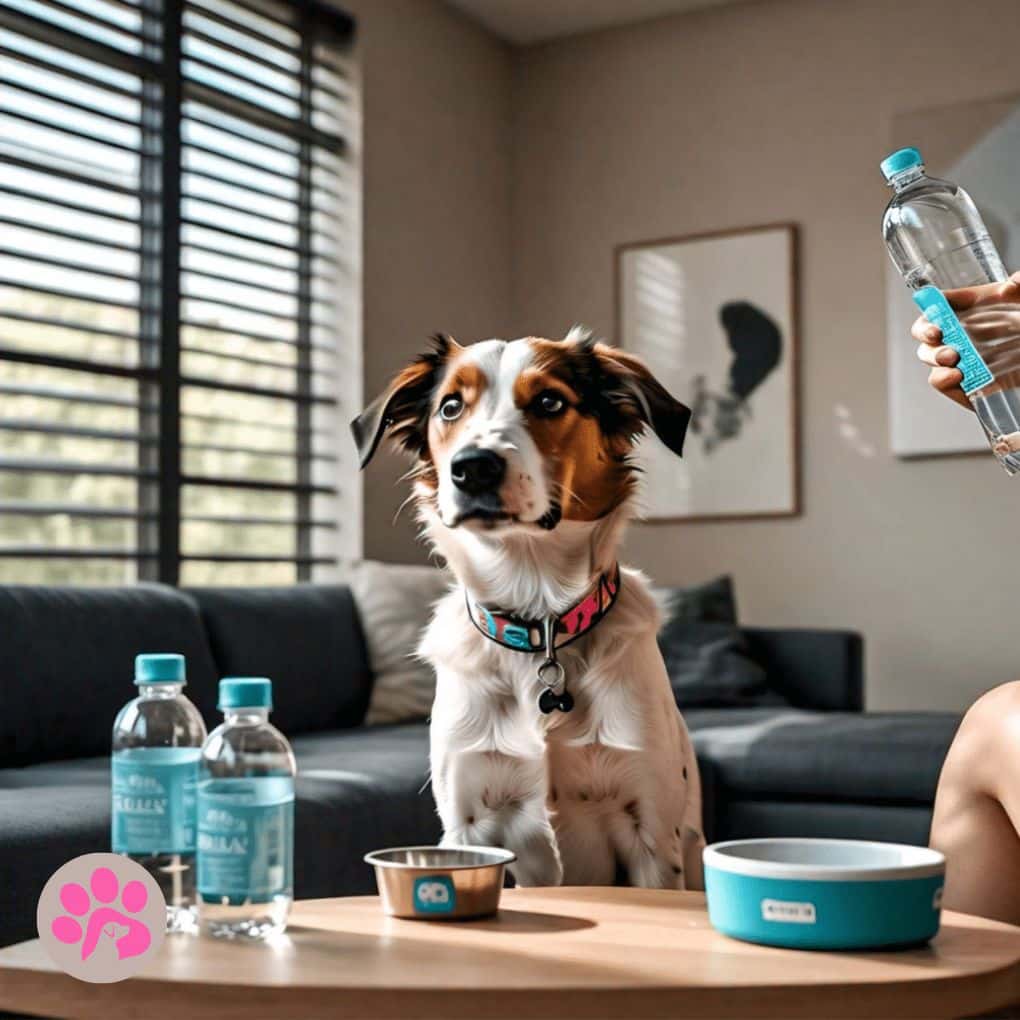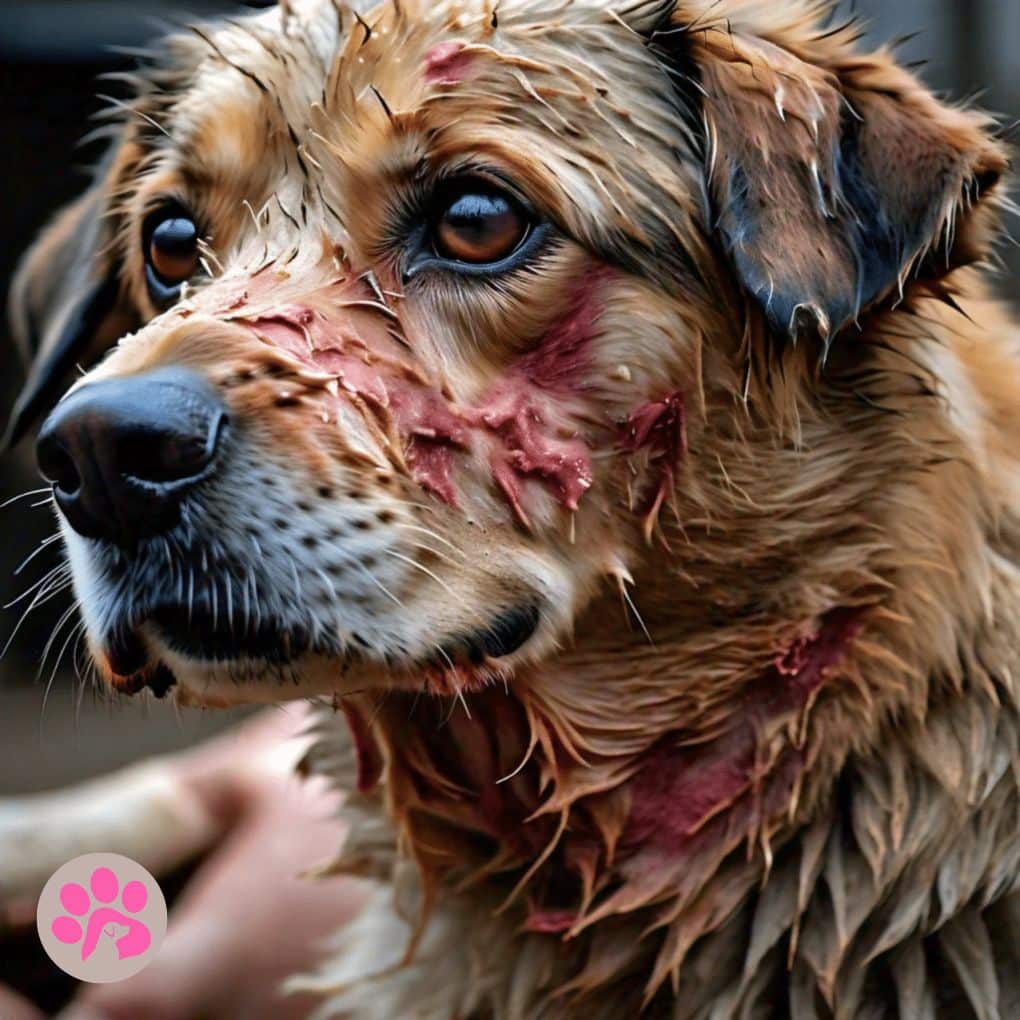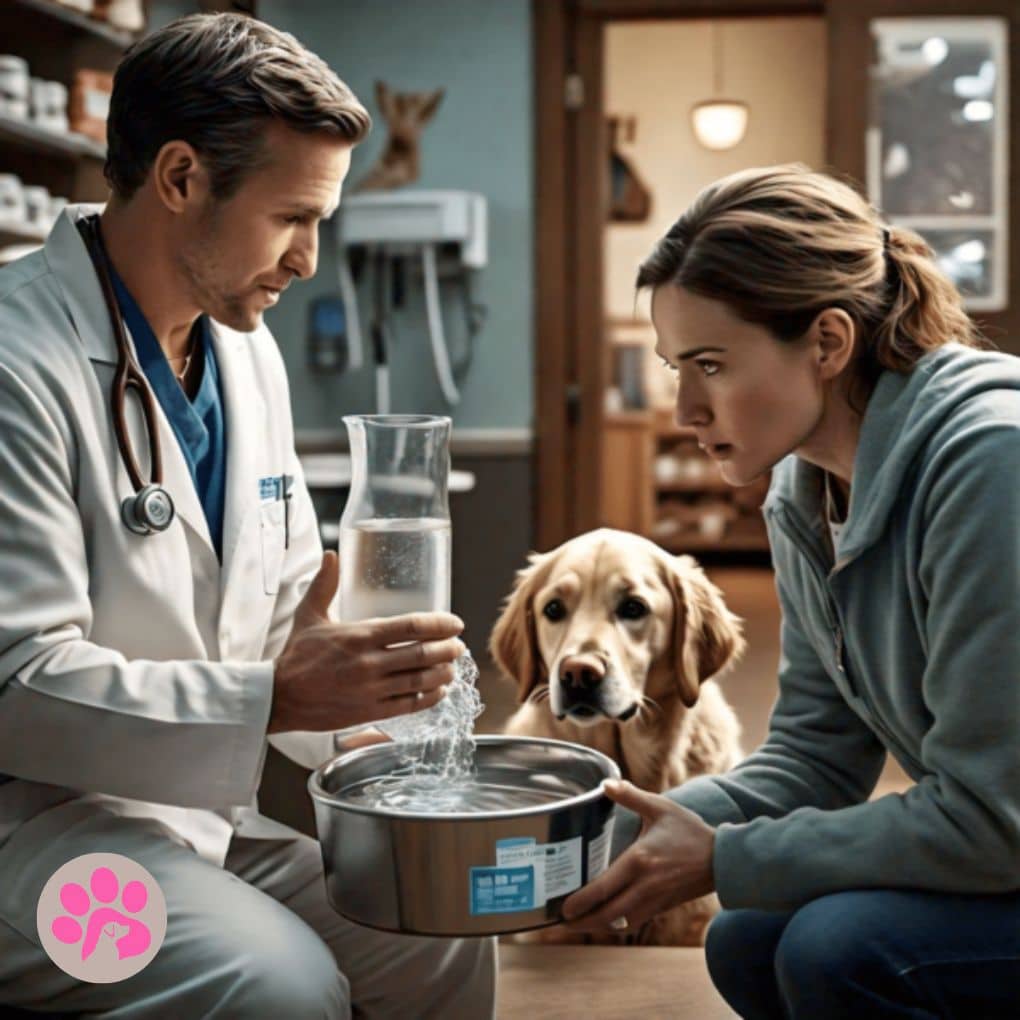Water really is the hidden hero of your dog’s health. Everyone knows that staying hydrated is important for people, but our animal friends often forget to do the same. This is what your dog wants: a big bowl of fresh water on a hot summer day. They’ll probably look like they just ran a run, which they probably did. Not only does keeping your dog moist quench their thirst, it’s also essential for their health and hydration. Water is important for your dog’s health and happiness because it helps them digest food, keeps their skin healthy, and gives them energy.
This important guide will explain why water is essential for your dog, how much they really need, and some fun ways to keep them drinking all day. Whether you have a dog before or not, knowing how much water your dog needs is important for making sure they live a happy, busy life. Now that you have a bowl, let’s make sure your four-legged friend stays healthy and hydrated. A cheerful dog is a hydrated dog!
Physiological Functions of Water/hydration for Dogs
Water is important for dogs in more than one way. For them, water is like a superhero because it keeps everything running smoothly. Keep your dog’s cells and organs moist to keep them healthy and happy. Like plants, a dog’s body can’t work right if it doesn’t get enough water. Water keeps the body going and makes sure that all cells get the nutrients they need. Your dog will stay healthy if they drink a lot of water. It gives them more energy. It is essential to keep your body temperature steady.

When your pet plays outside in the summer heat, water cools them down by making them sweat and pant. Your dog will pant and stick out his tongue to cool off when you play catch outside. Making sure your dog drinks enough water helps them get rid of heat, so no matter how busy they are, they won’t get too hot.
You also need water to take in and process food. Your dog needs to drink water so that their body can use the nutrients in the food they eat. If your dog’s stomach is healthy, it will drink a lot of water. This helps them get more of the beneficial stuff in their food by breaking it down better. If your dog doesn’t drink enough water, their heart could get sick. Things could get worse and hurt you more if you do this.
Don’t forget to throw away the trash! It’s important that your dog’s urine system works well and gets rid of waste. This drops the amount of salt in your urine and keeps your urinary tract clean. This keeps the pee stream clean so that infections and kidney stones don’t happen. The same way you clean out the inside and outside of your dog’s pipes!
Signs of Dehydration
You should always check to see if your dog is drinking enough water, because dehydration can happen quickly! Your dog can’t really hide it, though, and there are a few things you can look out for to make sure they stay happy and hydrated.
Damage to the skin:
To check for this, gently pinch the skin behind your dog’s neck or between their shoulder blades. If the skin doesn’t heal quickly, it means they may not be getting enough water. It will not spring back into place but will stay stretched for a moment, which means they need a drink.

Vomiting or diarrhea:
Your dog can lose a lot of fluids quickly if they are vomiting or having diarrhea. If you see these signs, it’s important to keep a close eye on how much water they drink to keep them from becoming dehydrated.
Dry nose and mouth:
One of the first things you should check is your dog’s mouth. If there gums look dry and sticky instead of moist and healthy. It could mean they need to drink more water. A dry nose is the sign to look out for, just like us dog’s can get a bit parched when they don’t get enough hydration.
Lethargy:
If your normally active dog suddenly becomes less active, dragging their paws on the ground, it could be a sign that they are dehydrated. Dogs, like humans, require water to keep their energy levels stable. If they don’t drink enough, they may become fatigued and sluggish.
Excessive Panting:
While it’s normal for dogs to pant, if you notice that your dog is panting more than usual, especially when they’re not moving or the weather isn’t hot, it could be because they’re thirsty and trying to cool off. Watch how they act to see if they seem off or if they need a drink!
Dark yellow urine:
Dogs sweat, of course. But if you notice that your dog is sweating more than normal, even when they’re not moving or it’s not hot outside, they may be drinking water to cool off. Keep an eye on them to see if they seem off or if they need something to drink.
If you see any of these signs, you should get your dog to drink more! It’s important for their health and happiness that you keep them hydrated. You can do this by refilling their bowl, giving them ice cubes as a treat, or even adding low-sodium broth to their water. Talk to your vet right away if you have any worries about your dog’s health or ability to stay hydrated. It’s better to be safe than sorry!
Factors affecting hydration needs:
There is no one answer to the question of how much water your dog should drink because dogs are different. What kind of water an animal needs varies on its breed, size, age, how much it exercises, and its health.

It is normal for a Chihuahua to drink less water than a Great Dane. As puppies get bigger, they need more water. Older dogs may need more water because their kidneys may not work as well as they used to or because of other health problems. When it’s hot outside, dogs that are active sweat more and need more water to stay hydrated. On the other hand, cold weather, especially when inside where it’s dry, can also make you lose water.
What your dog eats also affects how much water they drink. Dogs that eat dry kibble usually need to drink more water than dogs that eat wet food. If your dog already has health problems, like diabetes or kidney disease, they may need to drink more water to stay hydrated. Don’t forget these tips to keep your furry friend healthy and refreshed.